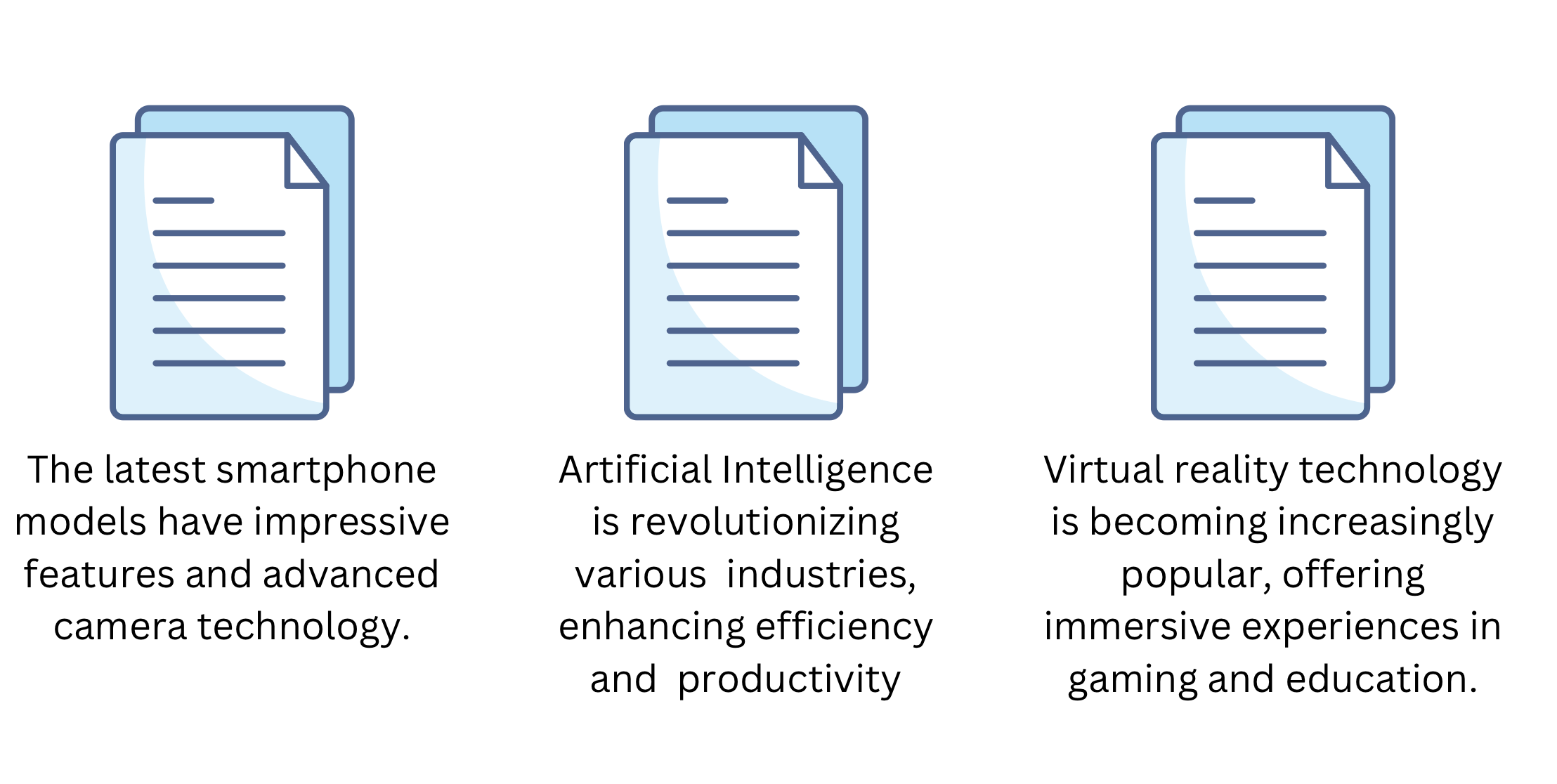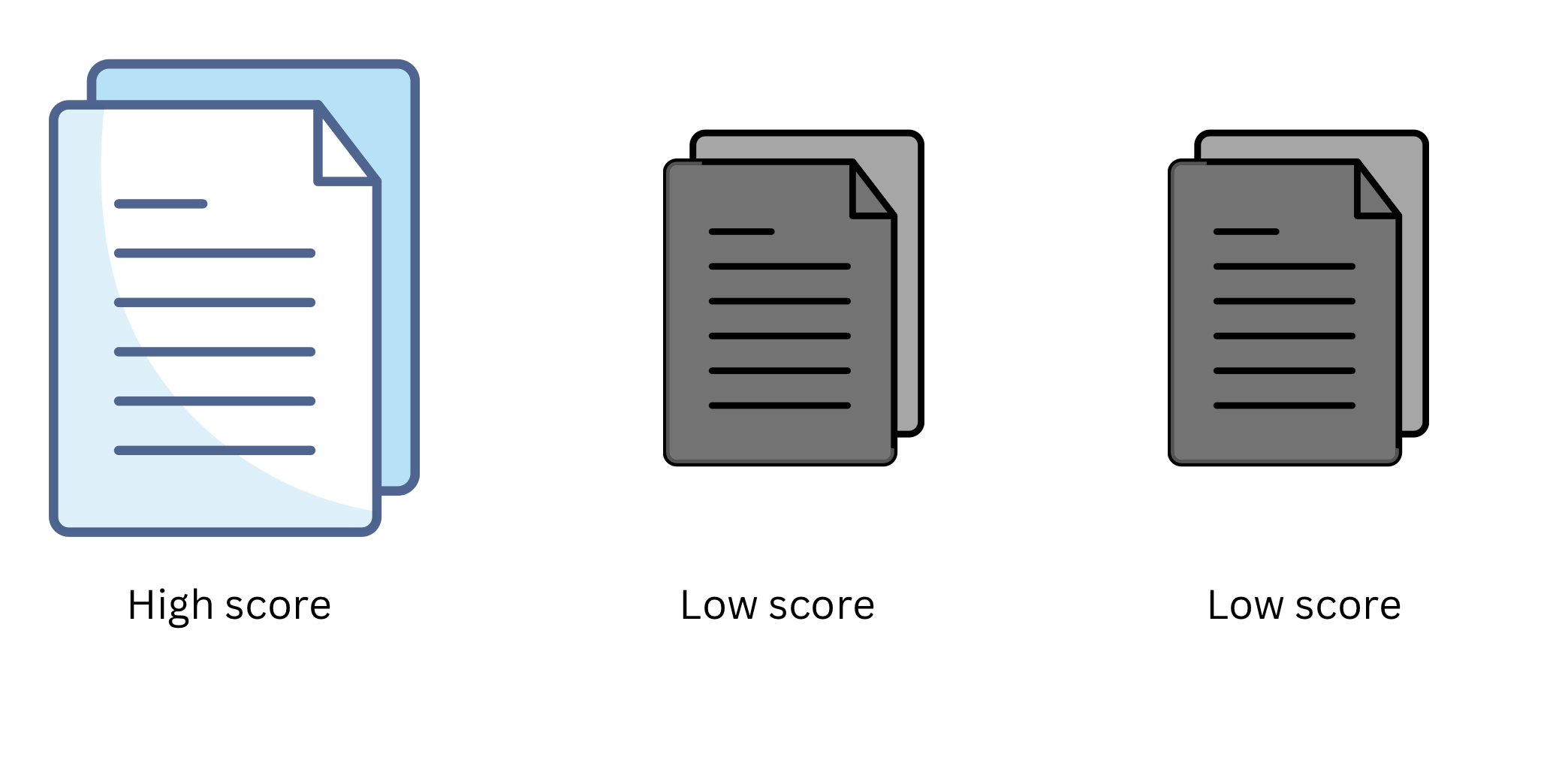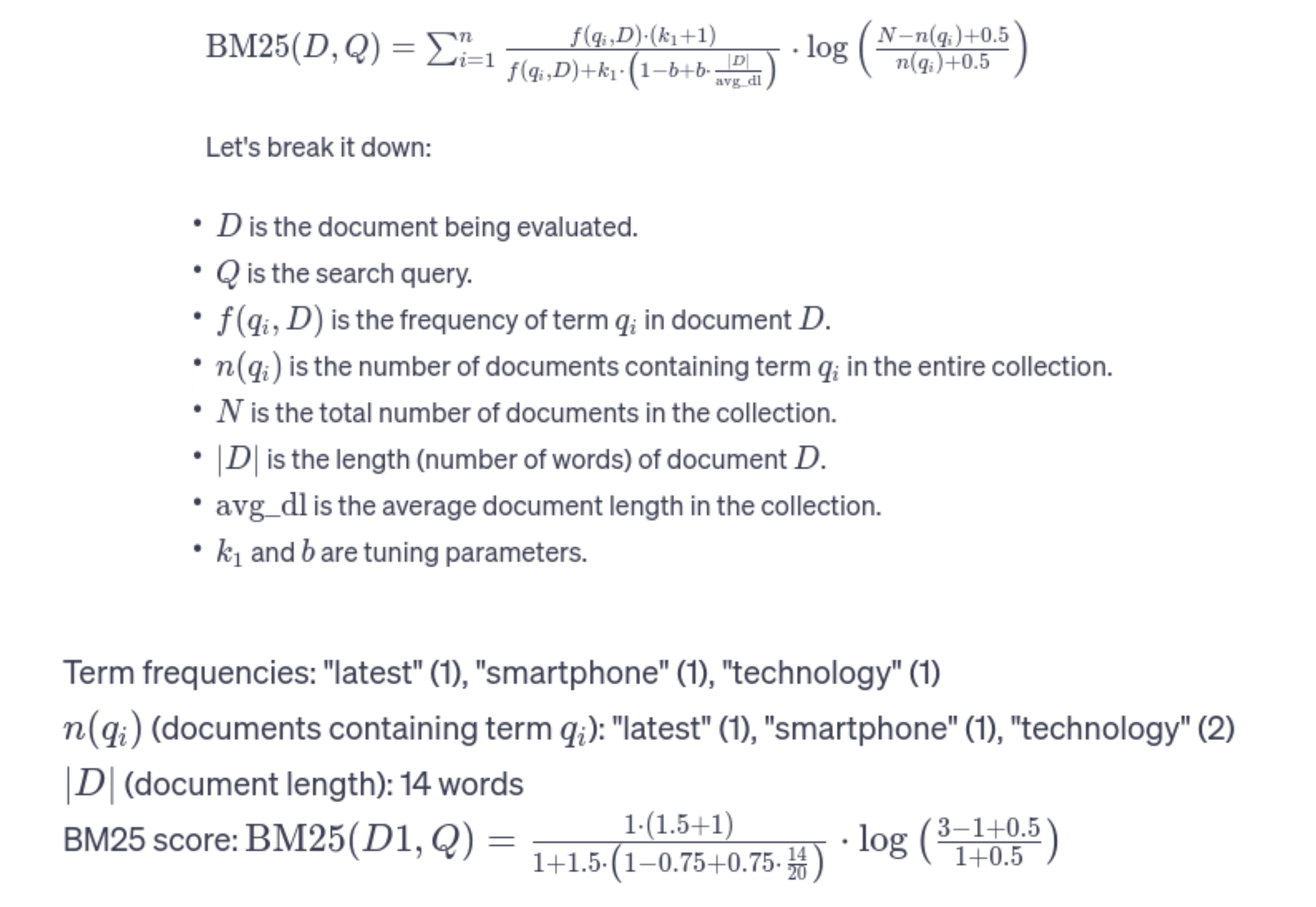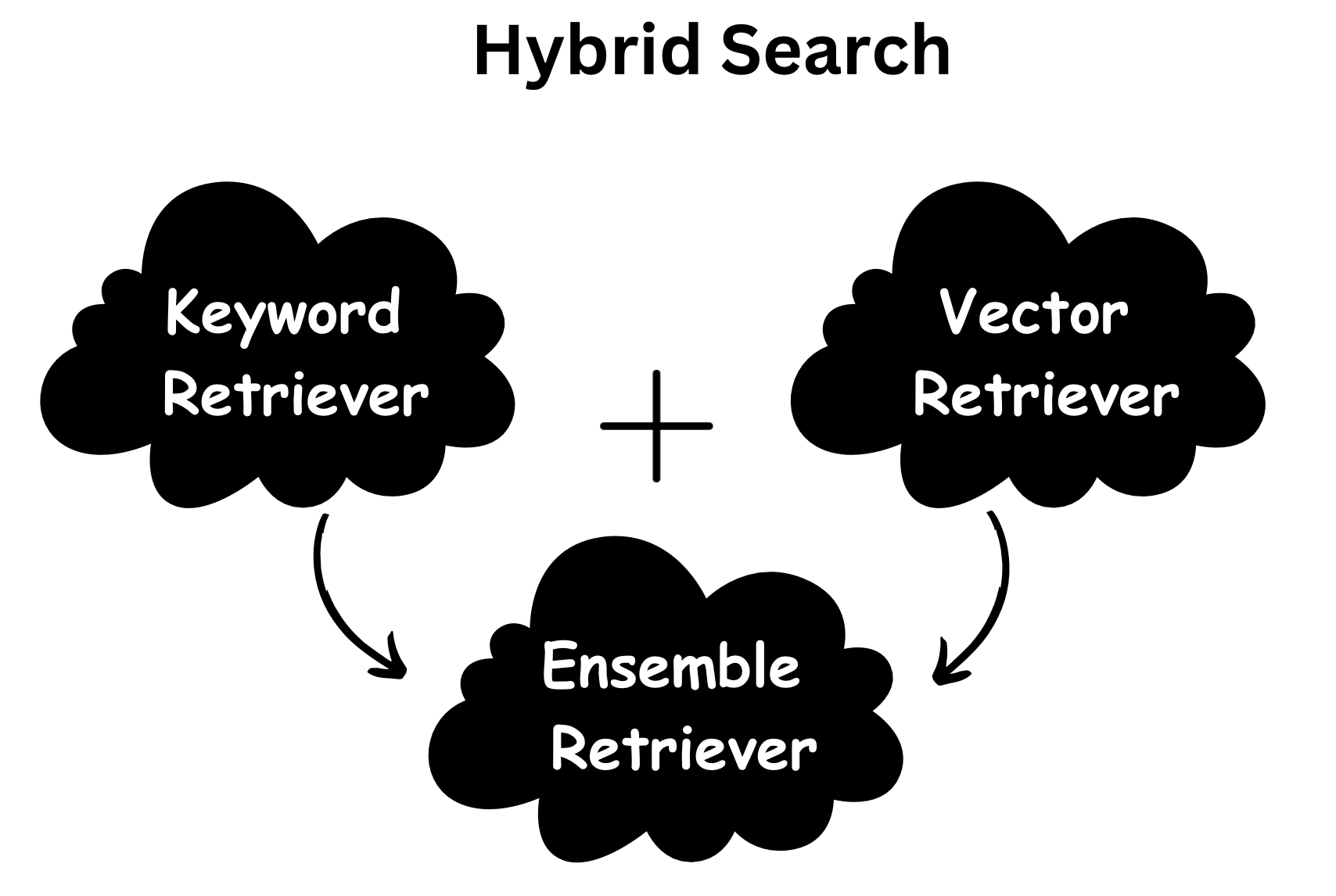The Role of Hybrid Search in RAG
In a typical RAG pipeline, the initial step involves retrieving relevant documents or passages from a knowledge base to provide context for the LLM. This is where hybrid search plays a crucial role:
- Keyword-based Search: The hybrid search approach starts with a keyword-based search, leveraging techniques like the BM25 algorithm. This allows the system to quickly identify documents that contain the exact terms or entities mentioned in the user's query. This step ensures precision and helps narrow down the set of relevant documents.
- Semantic Search: After the initial keyword-based filtering, the hybrid search approach then applies semantic search techniques. This involves using dense vector representations (embeddings) of the query and documents to find semantically similar content, even if the exact keywords don't match. This step helps broaden the search and surface documents that may be relevant based on meaning and context, rather than just literal term matching.
- Ranking and Scoring: The final step in the hybrid search process is to combine the results from the keyword-based and semantic search components. This is typically done using a weighted scoring function that balances the relevance scores from both approaches, allowing the system to surface the most relevant documents for the given query.
Benefits of Hybrid Search in RAG
The integration of hybrid search within the RAG framework offers several key advantages:
- Improved Relevance: By leveraging both exact keyword matching and semantic understanding, hybrid search can identify the most relevant documents to provide as context to the LLM, leading to more accurate and informative responses.
- Flexibility and Adaptability: Hybrid search can be tailored to different domains and use cases, allowing RAG systems to be deployed across a wide range of applications, from question answering to content generation.
- Efficiency: The combination of keyword-based and semantic search techniques can be more computationally efficient than relying solely on complex neural network-based retrieval models, making hybrid search a practical choice for large-scale deployments.
- Robustness: Hybrid search can handle a variety of query types, from specific factual questions to more open-ended, exploratory searches, making RAG systems more versatile and capable of handling diverse user needs.
Visual Understanding
First lets understand Keyword search. Consider you have three documents:

Now lets say, user asks the question: "Tell me about the latest advancements in smartphone technology." Based on this question, the BM25 retriever will score each document and return the most relevant document. In this case, its the first document.

If you are wondering how the score are calculated, here is the formula:

Now that Keyword search returns the relevant document, we use Hybrid Search, i.e., combines Vector Search and Keyword Search.

In summary, the integration of hybrid search is a crucial component of the Retrieval Augmented Generation framework, enabling the development of more powerful and effective AI applications that can leverage the strengths of both traditional and semantic search techniques.
